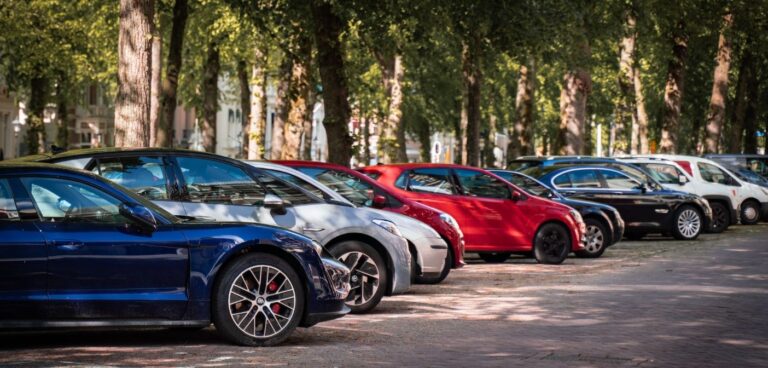Climate charity Possible has published analysis of figures from ten English local authorities, which shows the difference between the cost of private vehicle parking permits versus parking bay suspensions.
Parking bay suspensions can help open up public spaces for community-based schemes.
Using an average of the weekly cost of a parking bay suspension and the weekly cost of a residential parking permit from all ten cities, Possible claims that it is 115 times more expensive to suspend a parking bay (£158.06) than it is to pay for a parking permit (£1.38).
Possible reports that Bradford, Leeds and Nottingham had no weekly charge for a parking permit, while parking bay suspension cost £70, £187.60 and £23.38 per week.
The weekly cost of a parking permit in Liverpool was £0.04 but it cost £193 for a weekly parking bay suspension.
The other six cities, including London, Birmingham and Manchester, charged more for parking permits, but these costs were still far lower than those of a parking bay suspension.
Across these six cities, parking bay suspensions were revealed to be between 33 and 353 times more expensive than a parking permit.
Possible suggests this shows how UK cities heavily incentivise the ownership of private vehicles.
Hirra Khan Adeogun, head of car free cities at Possible, said: “We’re letting private cars hold our public space hostage.
“The fact that some cities aren’t even charging for parking just goes to show how local politicians are missing opportunities to break cities free from car dominance.
“Most of the time private cars are going completely unused and taking up valuable public space.
“We need to shift to a better system; one that prioritises people over private vehicles, gives space for communities to thrive and makes them happier, healthier, and greener places to live.”
Possible is asking local authorities to reevaluate the costs of parking permits to reflect the costs of petrol and diesel-powered car ownership taken on by society, including the impacts of pollution, road danger and loss of space. It asks that they implement an affordable process by which residents can reclaim public spaces to bring communities together, reduce car dominance and help the climate.





